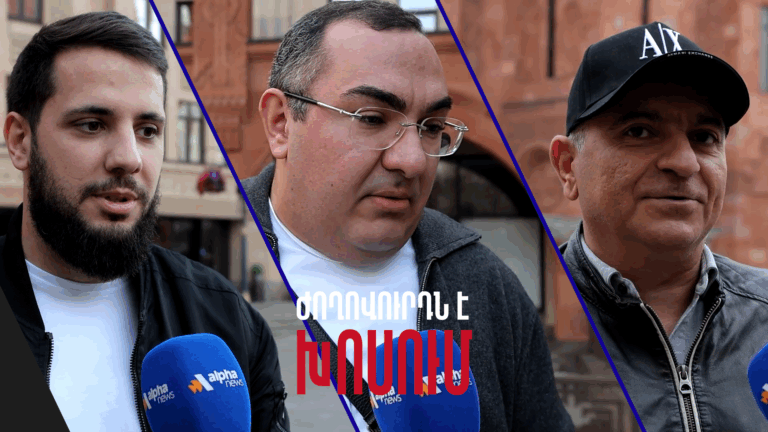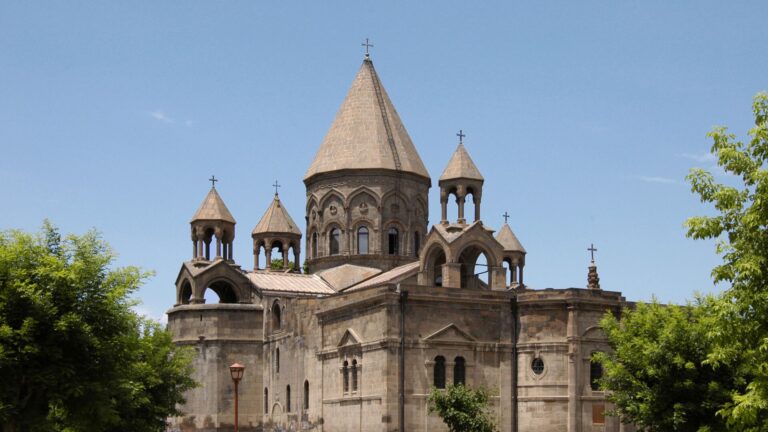“Enclaves” are new mines under Armenian statehood
October 10 2023, 10:21
As you know, on October 5, Nikol Pashinyan signed a declaration at a meeting with the EU, Germany and France on the sidelines of the summit of the European Political Community in Granada, in which he recognized the area Azerbaijan at 86.6 thousand square km.
Let’s leave aside the fact that Azerbaijani President Ilham Aliyev declined to attend the summit in Granada, and therefore did not put his signature on this declaration, which indicates the area of Armenia at 29.8 thousand square km, and note that in the indicated Azerbaijani 86.6 thousand square km, in addition to Nagorno-Karabakh, there are also so-called “enclaves”, which have been part of the Republic of Armenia since the 1990s of the last century.
Armenia’s recognition of the “enclaves” as part of Azerbaijan was refuted by the propaganda machine of the current authorities immediately after the meeting in Granada, but Nikol Pashinyan himself unequivocally stated on May 21, 2023 during his press conference that “Azerbaijan’s 86.6 thousand square km include enclaves.”
2 days after recognition of “enclaves” as part of Azerbaijan, Ilham Aliyev held a phone conversation with the head of the European Council, Charles Michel, and told him that “eight villages of Azerbaijan are still under the occupation of Armenia,” stressing the need to “liberate” these villages. As you can see, the outright lie of Pashinyan’s propaganda did not last even a week, and official Baku confirmed its claims to a number of territories of Armenia itself.
During the war of the 1990s, Armenia managed to liberate from Azerbaijan an area of about 60 square kilometers, including the “enclaves” of Verin Voskepar, Tigranashen, Sofulu and Barkhudarlu, as well as several villages once inhabited by Azerbaijanis near the village of Baganis Tavush region and a small area in the vicinity of Sarigyugh.
At the same time, Azerbaijan managed to seize about 71 square kilometers of territory from Armenia, which included Artsvashen (51 square kilometers), the village of Berkaber (12 square kilometers), as well as territory near Sevkar of the Tavush region (about 5 square kilometers).
Pashinyan’s signing of the declaration in Granada and Aliyev’s statement in a conversation with Michel signal a new escalation between Azerbaijan and Armenia.
For the modern Armenian state, the “enclaves” under the control of Yerevan are much more important from a strategic point of view than Artsvashen. The most important interstate highway connecting the central part of Armenia with Syunik, Artsakh and Iran passes through the Armenian Tigranashen. If Tigranashen is lost, Armenia will have only one exit to Artsakh and Iran – through the village of Vedi. At the same time, Azerbaijan will receive the most important place for an attack on the central part of Armenia, and at the slightest threat to itself, it will be able to cut off Syunik from the rest of the country, taking the remaining road under its control.
The interstate road to Georgia passes through the “enclave” of Voskepar. The loss of control over this territory threatens the physical existence of the gas pipeline from Georgia to Armenia running along the Red Bridge – Sevkar – Berd line. The pipe will be within reach of Azerbaijan. The loss of these territories poses enormous risks and narrows the horizon of predictability for the Armenian state, and can also lead to an energy blockade.
Aliyev needs “enclaves” in order to put Armenia under the same blockade in which he kept Artsakh for 10 months. Pashinyan is in a hurry to get rid of them due to his desire to complete the change of the region’s geopolitical image.
Azerbaijan does not hide the fact that if it does not soon receive “enclaves” peacefully, it may use military force against Armenia, which was openly stated by the RA Ambassador to the EU Tigran Balayan, who said that there is a danger of an imminent attack by Azerbaijan on Armenia.
It is obvious that in this scenario, Nikol Pashinyan will again shift responsibility for the new tragedy and will “appoint” the Russian Federation and the CSTO as the culprit of what happened. Pashinyan and his propaganda machine will declare that “the allies did not come and help Armenia defend the territories recognized by Yerevan as part of Azerbaijan,” after which a more open and rapid process will begin for the country to withdraw from the CSTO, as well as for the withdrawal of 102 military bases and Russian border guards from the Republic of Armenia.
Once this process is completed and the “security dome” over Armenia is completely destroyed, nothing will stop Baku and Ankara from putting pressure on official Yerevan to sign the same document that Samvel Shahramanyan signed on September 28, that is, a document on the dissolution of statehood, but this time it will be the statehood of the Republic of Armenia.
That is why the story with “enclaves” is a mine under the Armenian statehood.







